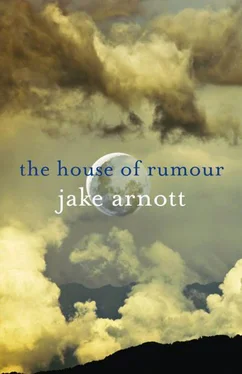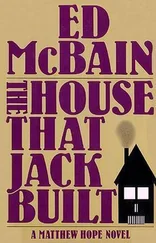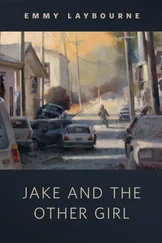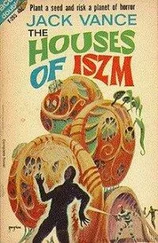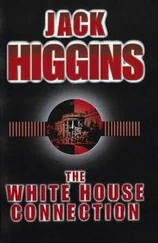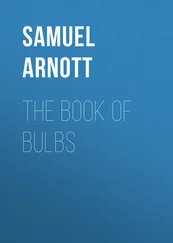It seems clear that this is what inspired Larry to start work on what was to become The Quantum Arcana of Arnold Jakubowski (1966), a cycle of twenty-two interconnecting stories structured around the trump cards in the Tarot deck. Zagorski spent longer on this novel than any other and he was never happy with it.
It started with such promise, I mean it just seemed to write itself until I got up to the sixteenth card, and then — wham! It was the Tower! I was back at my first story, back trying to find my lost father. I felt that I was being led into a hall of mirrors, stuck in some awful time warp. I’d been doing primal therapy, rebirthing, stuff like that, and, of course, ingesting huge quantities of LSD. I used Crowley’s Thoth pack, which is pretty psychedelic anyway — and there it was: the ego, the phallus, that vision of authority I could never overcome, plus I’d just learnt that I was infertile so I felt emasculated and cut off from fatherhood at both ends of the continuum. I found myself wandering up and down Venice Broadwalk, muttering, ‘The tower must fall, the tower must fall.’ I had an overpowering sense of doom — after all, the Tower represents ruin and catastrophe. I got through it but after that it was a hard book to finish.9
Now the Tower had perhaps become a symbol of an existential despair in the midst of apparent success. As Blaise Pascal had written: ‘We burn with a desire to find a secure abode, an ultimate firm base on which to build a tower which might rise to infinity; but our very foundation crumbles completely, and the earth opens before us unto the very abyss.’
The critical reception of The Quantum Arcana of Arnold Jakubowski was mixed. Village Voice declared it a ‘meta-fictional masterpiece’; The New York Times called it ‘a confused and self-indulgent mess’. It was joint winner of the Hugo Award for best novel awarded at the SF Worldcon in Cleveland, Ohio in 1966.
Much of Zagorski’s work was now being hailed as part of the ‘New Wave’ of SF writing. Larry certainly liked to be seen as radical and he pushed the idea of an ‘alchemical reaction between pop culture and the avant-garde’. His stories found their way into Michael Moorcock’s militantly nouvelle vague journal New Worlds and he was asked to contribute to Harlan Ellison’s seminal anthology Dangerous Visions (1967). But already one can detect an uneasiness concerning the permissive age in Zagorski’s writing. His Dangerous Visions story, ‘The Crazy Years, Mass Psychosis in the Sixth Decade’ (named after Robert Heinlein’s uncanny prediction for the 1960s in his 1941 ‘Time-Line of Future History’), depicts an increasingly barbaric youth cult called the Subheads, whose idea of liberation is to progressively burn out their brains with highly potent hallucinogens. It was also a desperate reflection of his fears concerning his own drug addiction.
In 1968, Larry married Wanda Ferris, a sculptor aged twenty-eight who had been a long-time resident of the commune in Venice. They moved into a beach house in Malibu together. Wanda recalls:
We’d had this freewheeling kind of affair for years. Larry was great company, so full of ideas, funny and charming. To be honest I was happy with an open relationship. But he was never any good with the free-love ethic. Oh, he wanted to be but he just couldn’t do it. Basically he craved emotional security. He kept on at me about living as a couple, just the two of us. He made it sound like a wonderful dream and I knew that the idea of it would make him happy so in the end I agreed. But it was a big mistake.10
As the sixties drew to a close Larry became more and more paranoid. He was convinced that he was being watched by the FBI and the Church of Scientology. He had a high-security fence rigged up around the beach house and began to amass a small arsenal of firearms. Wanda remembers asking him: ‘ “What’s all this really about, Larry?” and he replied: “Guilt”. “Guilt, what about?” “I don’t know, everything”.’ In 1969, during the Tate/LaBianca murder investigation, it was revealed that the Manson Family used names and rituals from Stranger in a Strange Land as part of their cult, and a heavily annotated copy of American Gnostic was also found in their Spahn Ranch headquarters.
The Peregrinations of Percival Pluto (1970) was completed during a sustained LSD binge that was excessive even by Zagorski’s standards of the time. Despite the gruelling complexities of his last novel, Larry was determined to continue to stretch the boundaries of the SF form by attempting what he explained as ‘a science fiction version of Wolfram von Eschenbach’s Parzival ’.
I’d thought long and hard about the term ‘space-opera’ and how it’s a pejorative term, but I thought what if you wrote something truly operatic? So Peregrinations became this Wagnerian project. It was insane! It was this interplanetary quest and I really did want to explore spirituality and symbolism on some deep level but it ended up in a whole series of psychological dead ends. And yes, Childe Larry to a dark tower came once more. This time it was the Grail Castle with its castrated king. I didn’t have any answers. I’d forgotten what the question was.11
Despite being scarcely readable, the novel sold steadily throughout the 1970s. It was thought to contain many hidden messages and references to self-awareness and spiritual growth. ‘It was a mess,’ was Larry’s later verdict on it, ‘but its success had a woeful effect upon me. For a while I was convinced that I had this visionary gift so the writing really suffered.’
From Here to Alternity (1972) features a time-travel organisation called the Office of Counter-factual Affairs, which intervenes at volatile moments in history such as the Battle of Hastings or the Third Crusade of 1198. The novel’s protagonist, Baxter Brahma, jumps from one unstable jonbar point to another, occasionally falling into an alternate universe that he has to escape from. Brahma holds the key to scientia media , or middle knowledge, a concept devised by the sixteenth-century Jesuit, Luis Molina, to reconcile divine providence and free will: that God has prevolitional knowledge of all conditional contingents and possible counter-factual worlds.
‘I spent most of the 1970s doing a lot of coke and developing a warped understanding of Renaissance philosophy and particle physics.’ Larry became convinced that alchemy and astrology had a deep connection with quantum mechanics and believed that occult and hidden traditions could provide some unifying theory. In 1973 he experienced a series of hallucinations that elemental forces were attempting to contact him with the information that God existed on a subatomic level. In The Hieroglyphic Monad (1974), Zagorski uses Elizabethan magician John Dee’s universal symbol of the cosmos, a unifying motif that attempts to connect a series of discursive stories set in a twenty-second-century Europe where the Enlightenment never happened.
Wanda Ferris left Larry Zagorski in 1976. ‘He was a pharmaceutical mess, yes, that was for sure; he was slowly but surely killing himself. But the worst thing was that he’d lost all his charm. He’d become grandiose and insufferable.’ By the end of the decade he had descended into near madness and degradation. His old friend Mary-Lou Gunderson was shocked when they met in April 1978.
I’d just got a new job as a television producer at one of the main studios and suddenly science fiction was on the rise again after the massive success of Star Wars — there was big money ready to finance TV franchises like Battlestar Galactica and Buck Rogers in the 25th Century . So I took a meeting with Larry, which I thought would be fun, imagining that we’d catch up on the past and talk about rehashing all the pulp and space-opera ideas from when we’d started out. But it was awful. Larry was this jibbering wreck, constantly wandering off to the restroom, obviously to take drugs. He kept muttering that this heretic monk had been in touch and had a message for me.12
Читать дальше
